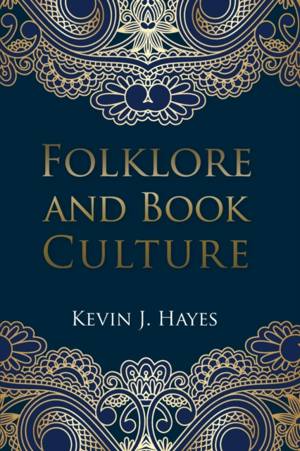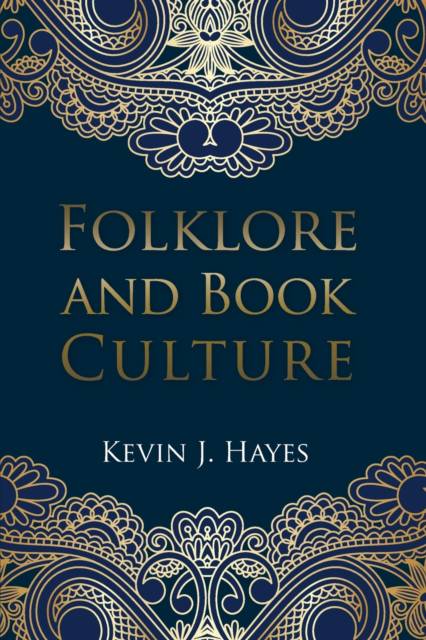
- Afhalen na 1 uur in een winkel met voorraad
- Gratis thuislevering in België vanaf € 30
- Ruim aanbod met 7 miljoen producten
- Afhalen na 1 uur in een winkel met voorraad
- Gratis thuislevering in België vanaf € 30
- Ruim aanbod met 7 miljoen producten
Zoeken
Omschrijving
To many observers, folklore and book culture may appear to be opposites. Folklore, after all, involves orally circulated stories and traditions while book culture is concerned with the transmission of written texts. However, as Kevin J. Hayes points out, there are many instances where the two intersect, and exploring those intersections is the purpose of this fascinating and provocative study. Hayes shows that the acquisition of knowledge and the ownership of books have not displaced folklore but instead have given rise to new beliefs and superstitions. Some books have generated new proverbs; others have fostered their own legends. Occasionally the book has served as an important motif in folklore, and in one folk genre--the flyleaf rhyme--the book itself has become the place where folklore occurs, thus indicating a lively interaction between folk, print, and manuscript culture. The author begins by examining the tradition of the Volksbucher--cheaply printed books, often concerned with the occult, whose powers are said to transcend the written text. Hayes looks in depth at one particular Volksbuch--The Sixth and Seventh Books of Moses--and proceeds, in subsequent chapters, to discuss a variety of folktales and legends, placing them within the context of book culture and the history of education. He closes with an examination of flyleaf rhymes, the little verses that book owners have inscribed in their books, and considers what they reveal about the identity of the inscribers as well as about attitudes toward book lending, book borrowing, and the circulation of knowledge. Solidly researched and venturing into areas long neglected by scholars. Folklore and Book Culture is a work that will engage not only folklorists but historians and literary scholars as well.
Specificaties
Betrokkenen
- Auteur(s):
- Uitgeverij:
Inhoud
- Aantal bladzijden:
- 184
- Taal:
- Engels
Eigenschappen
- Productcode (EAN):
- 9781498290210
- Verschijningsdatum:
- 5/02/2016
- Uitvoering:
- Paperback
- Formaat:
- Trade paperback (VS)
- Afmetingen:
- 152 mm x 229 mm
- Gewicht:
- 254 g

Alleen bij Standaard Boekhandel
+ 50 punten op je klantenkaart van Standaard Boekhandel
Beoordelingen
We publiceren alleen reviews die voldoen aan de voorwaarden voor reviews. Bekijk onze voorwaarden voor reviews.











